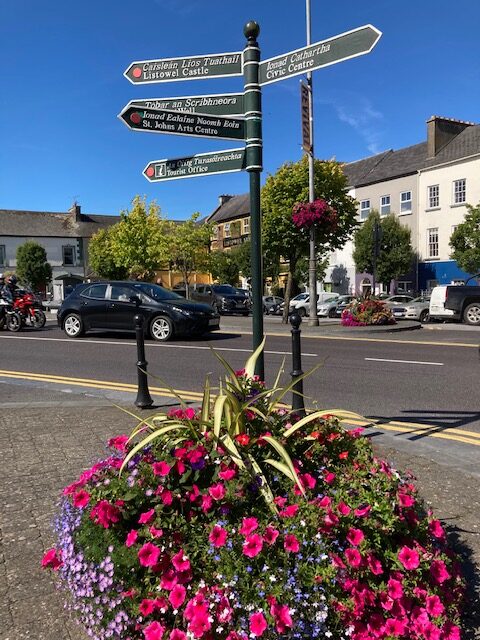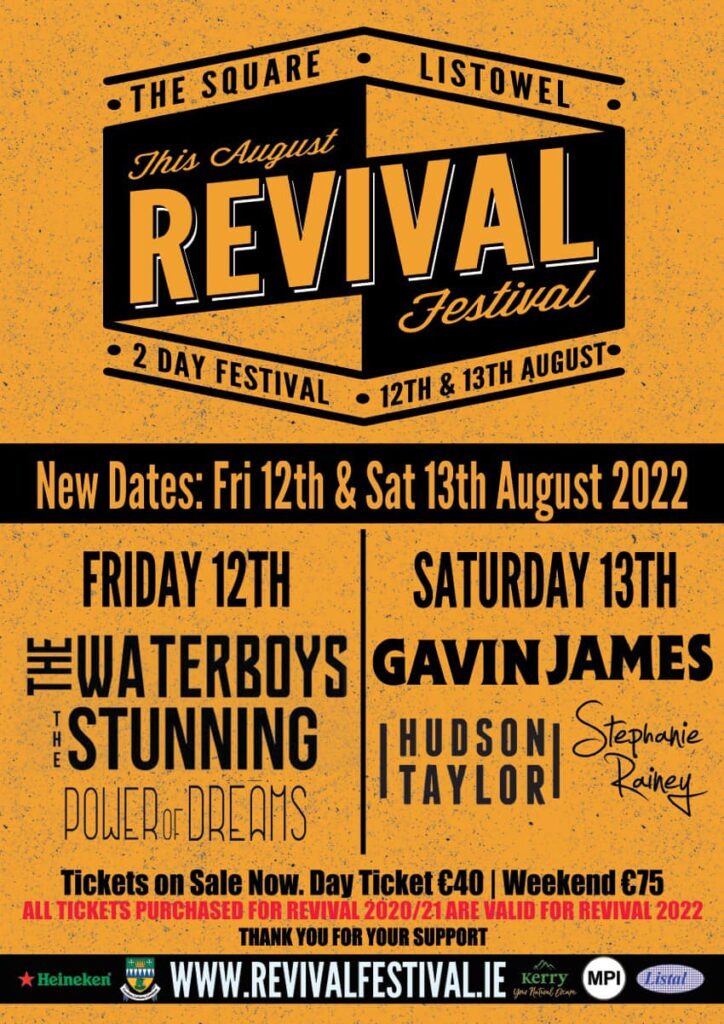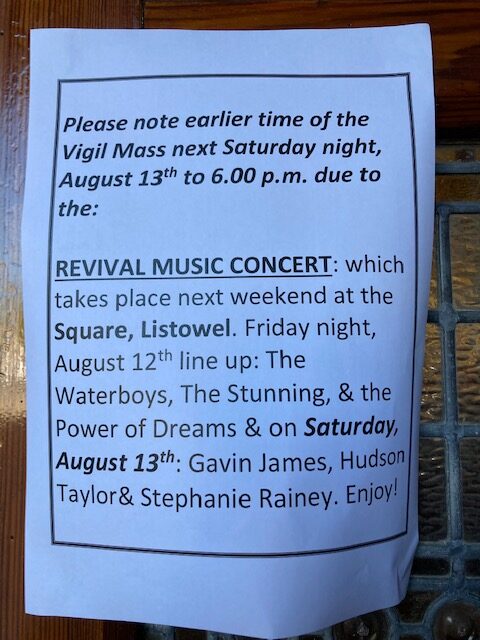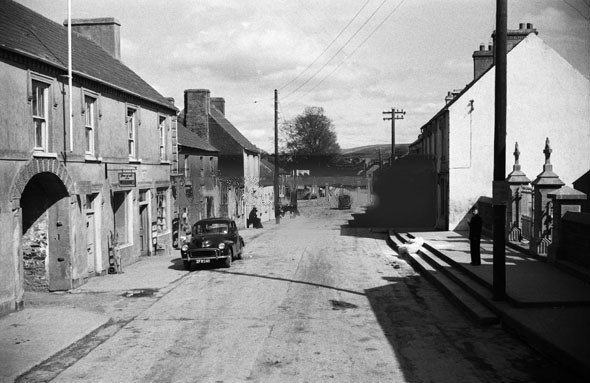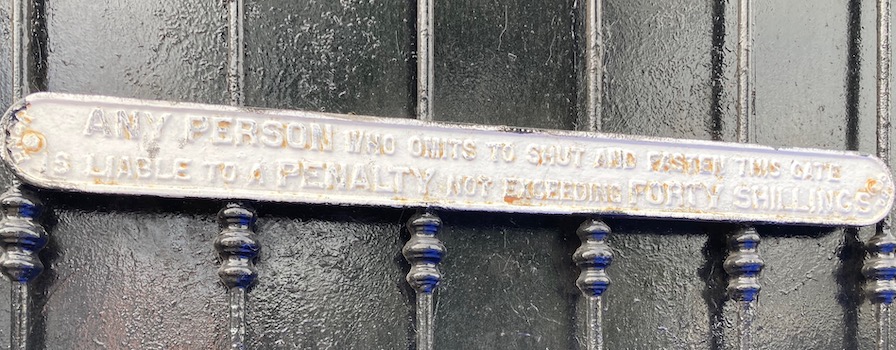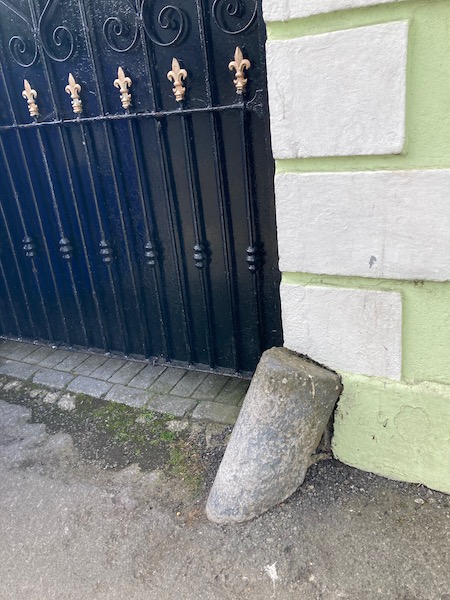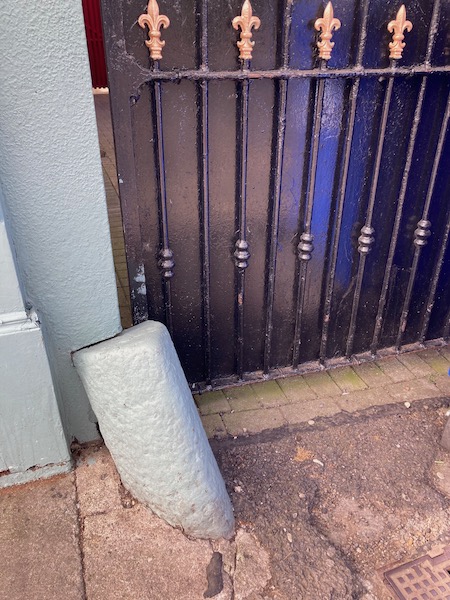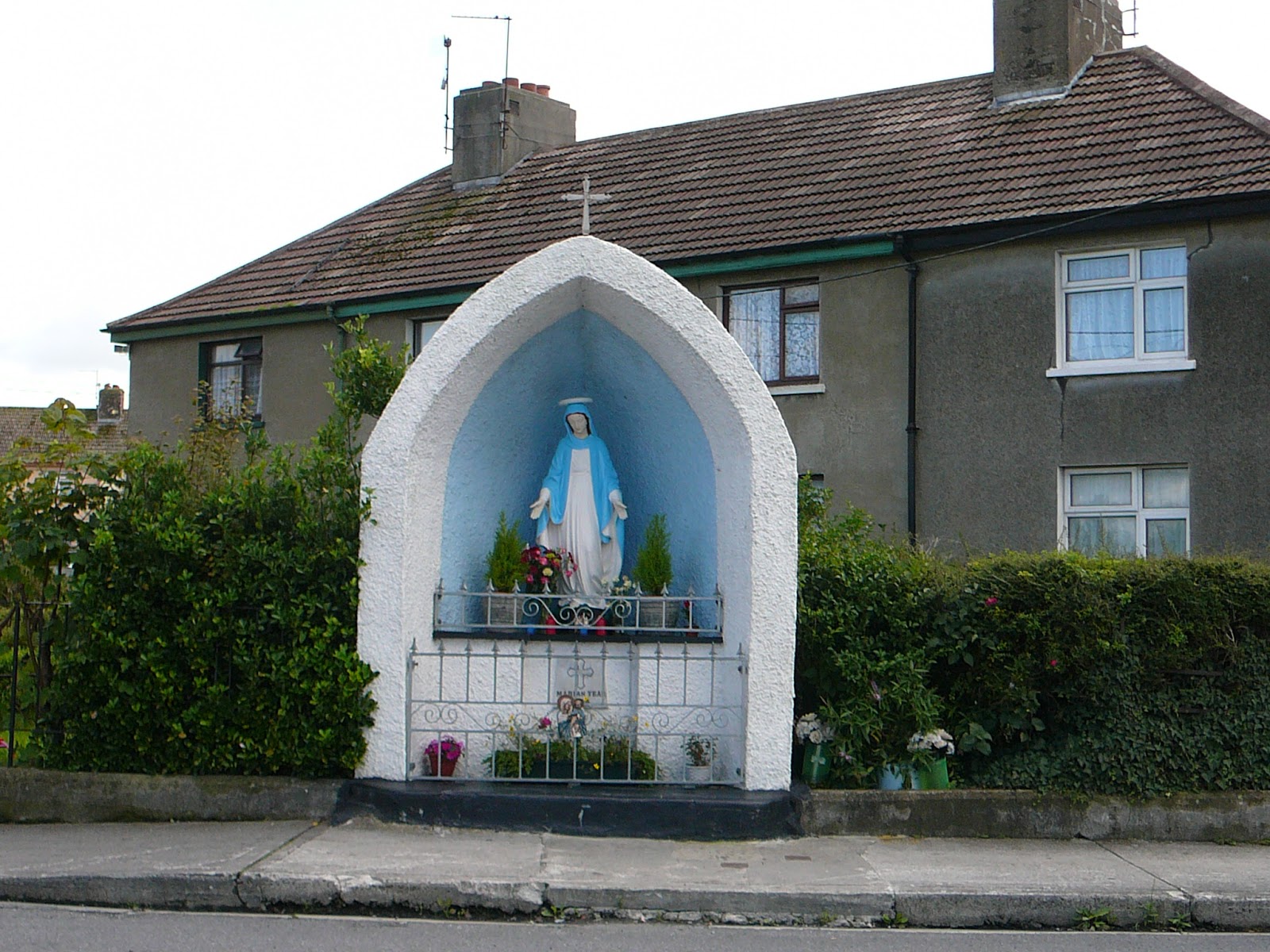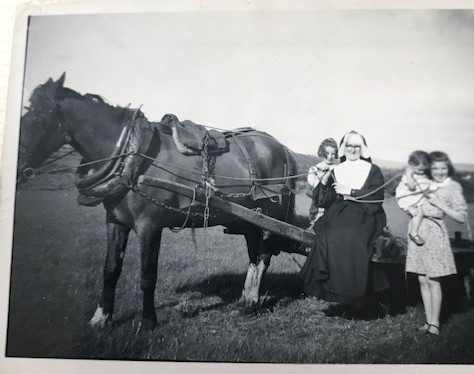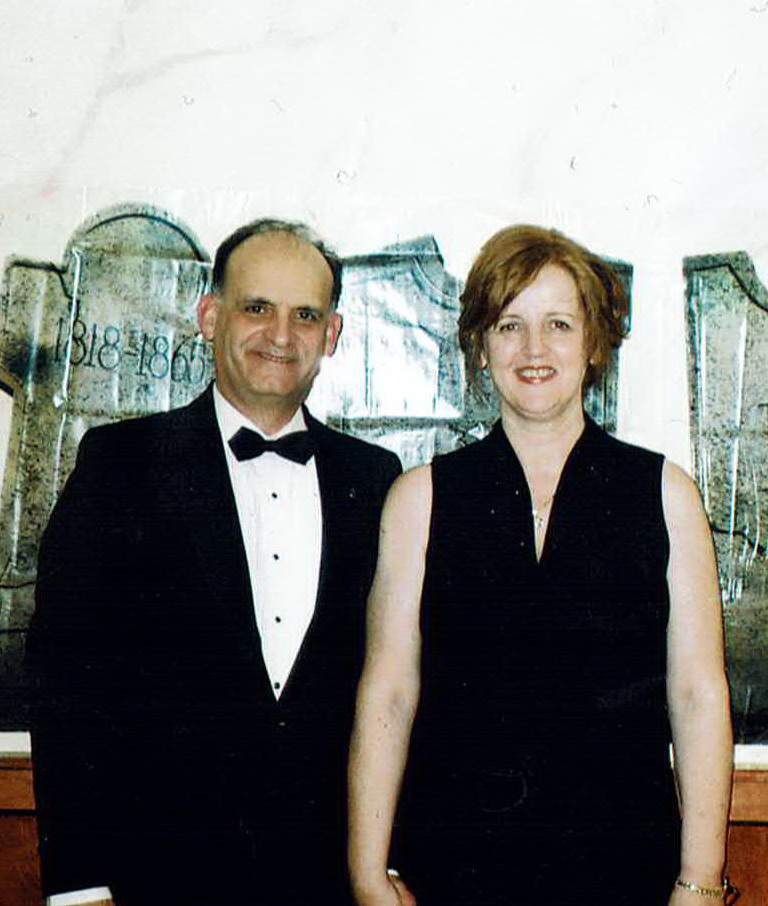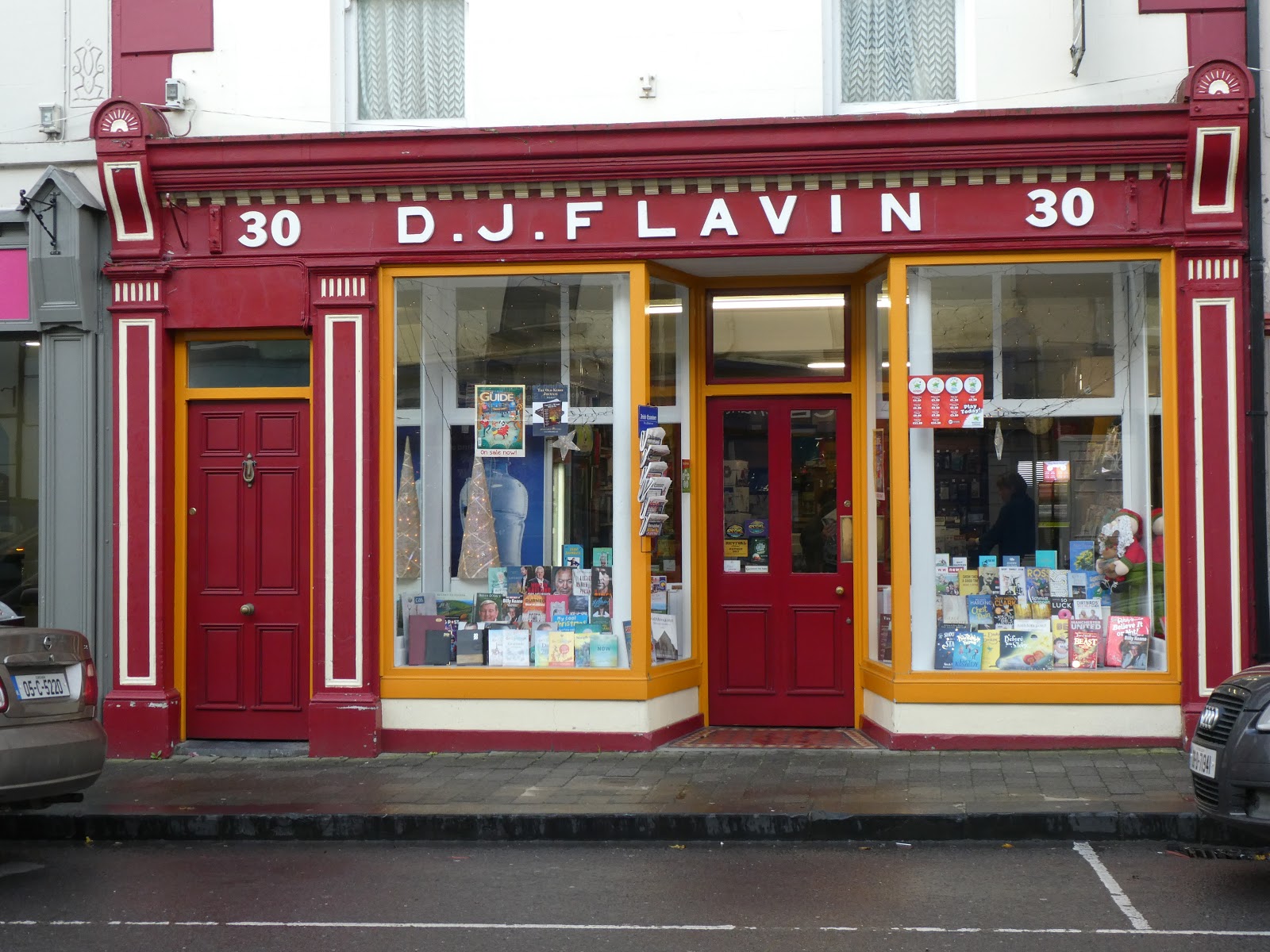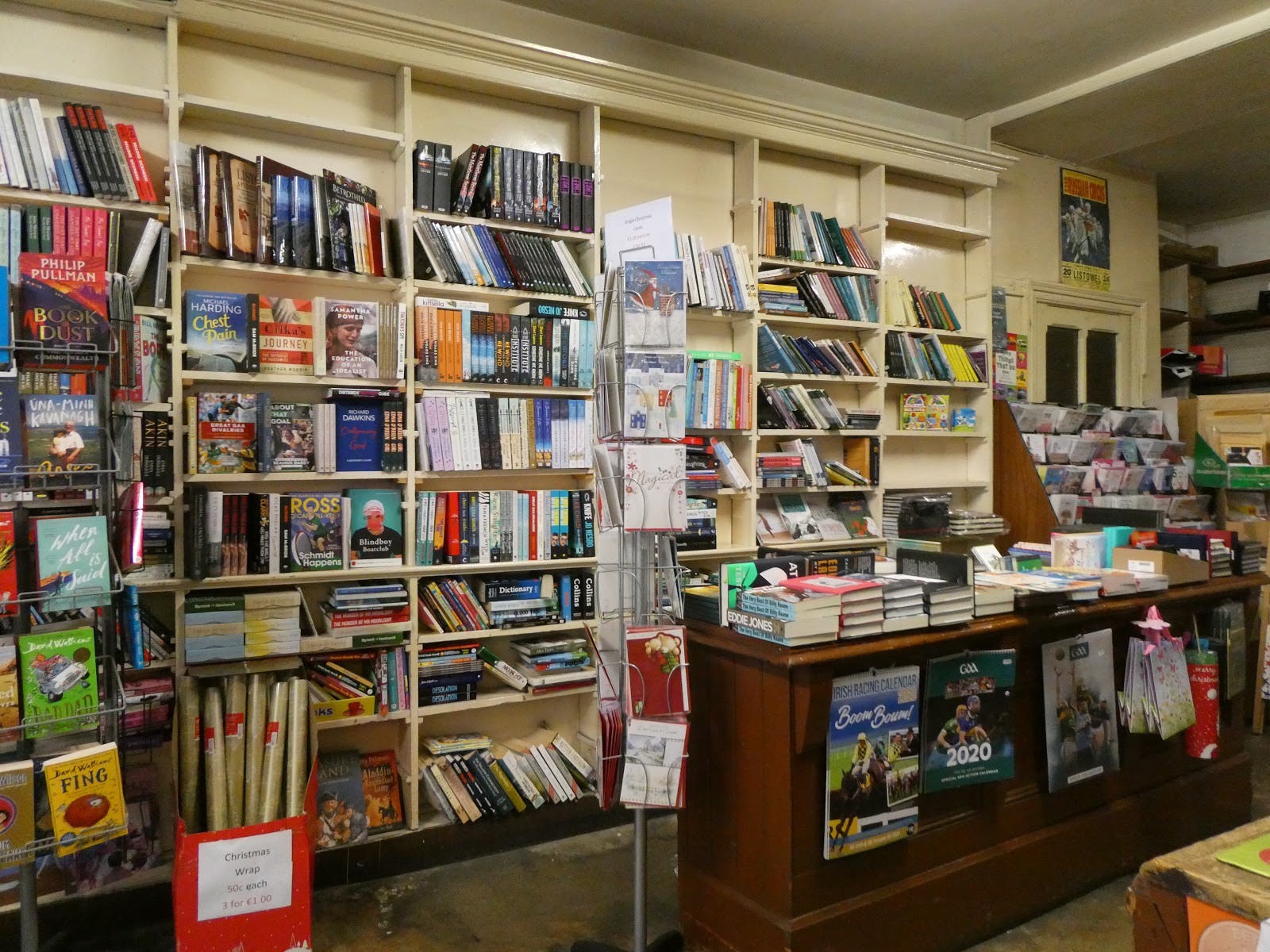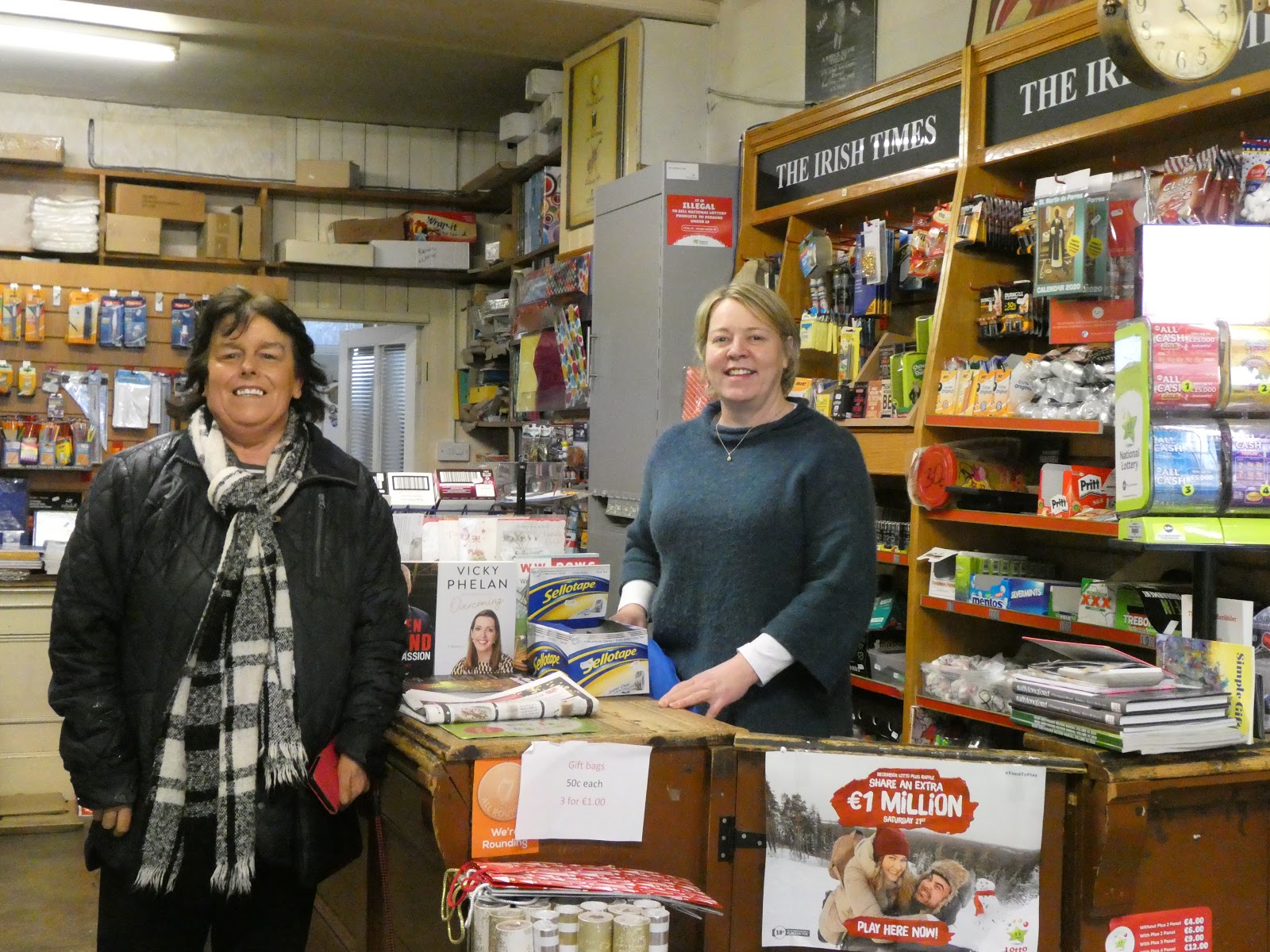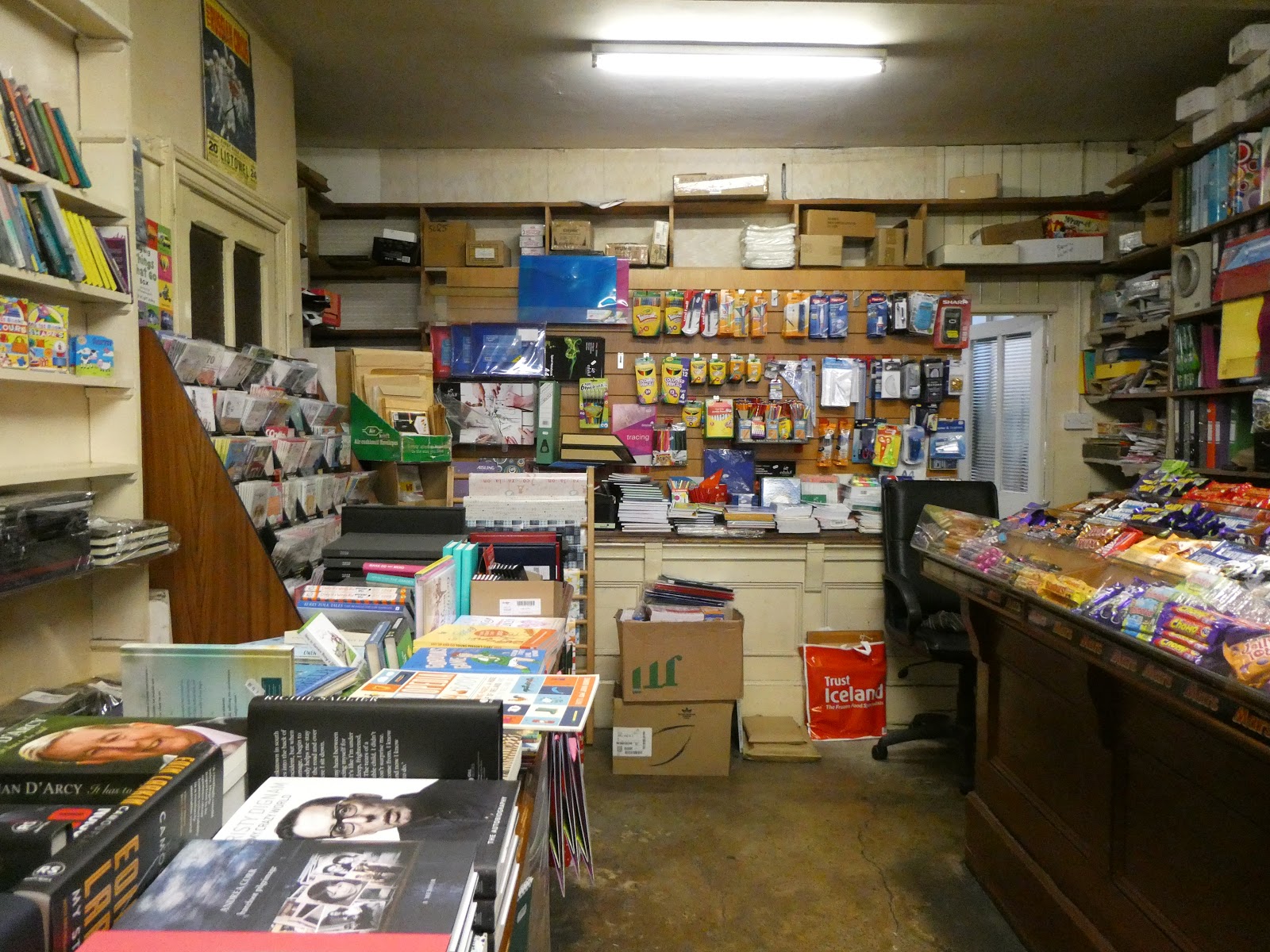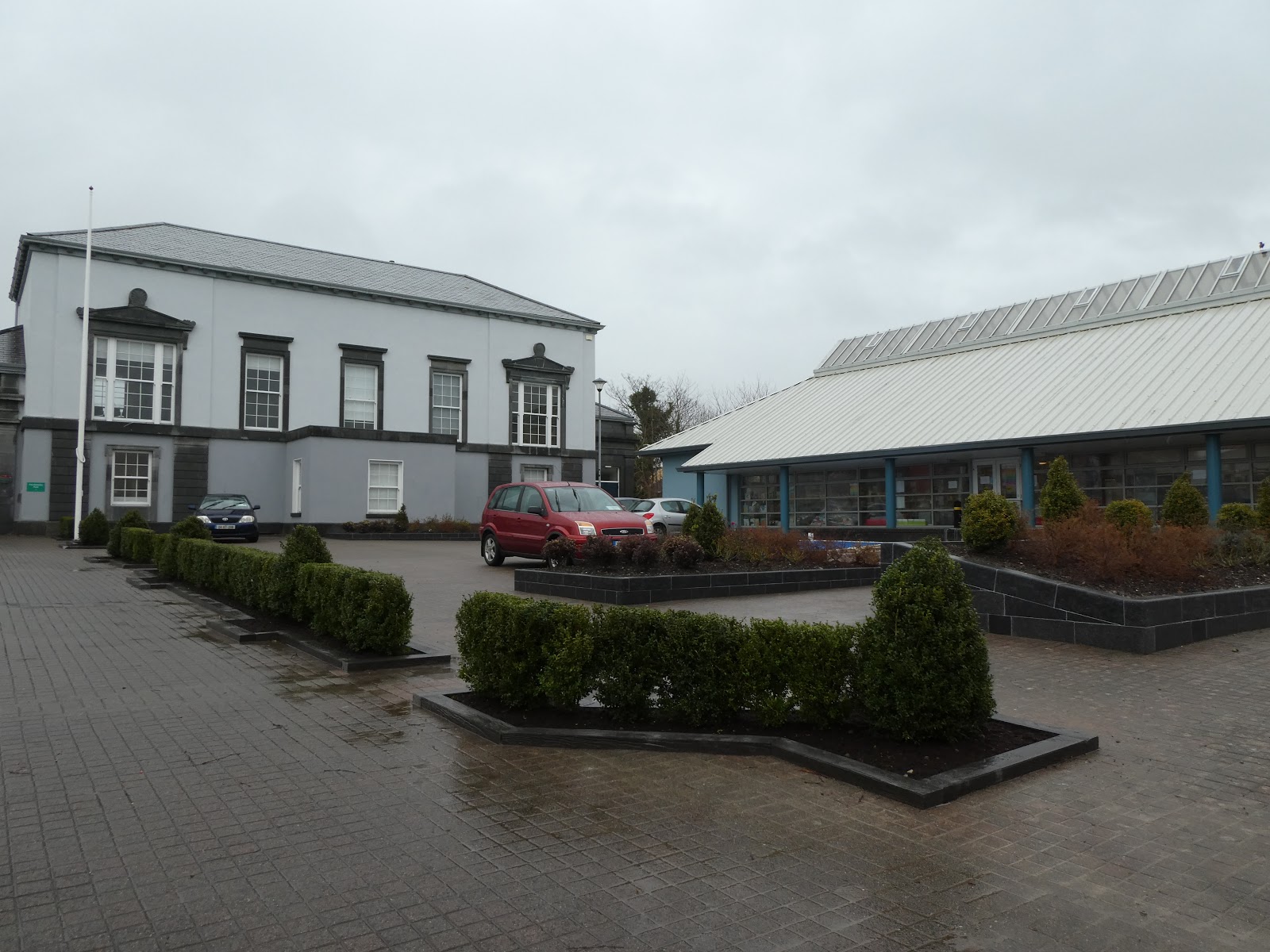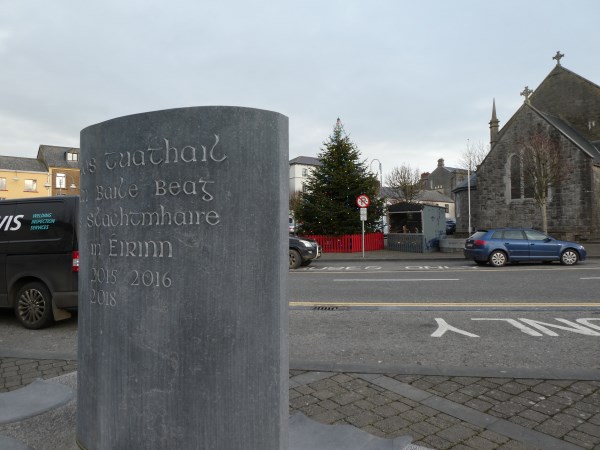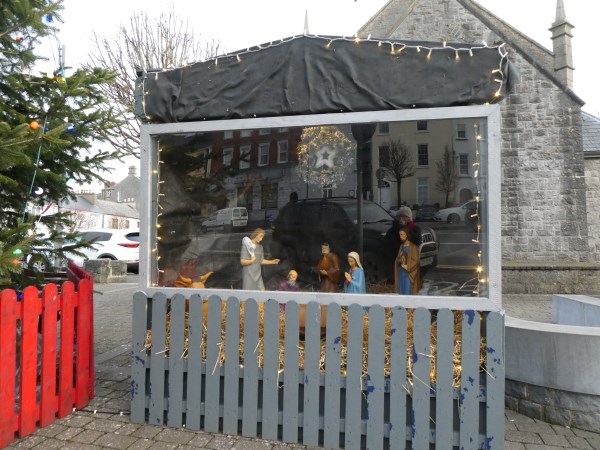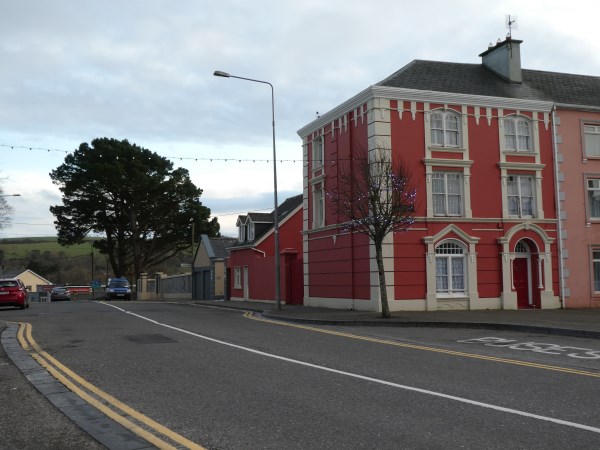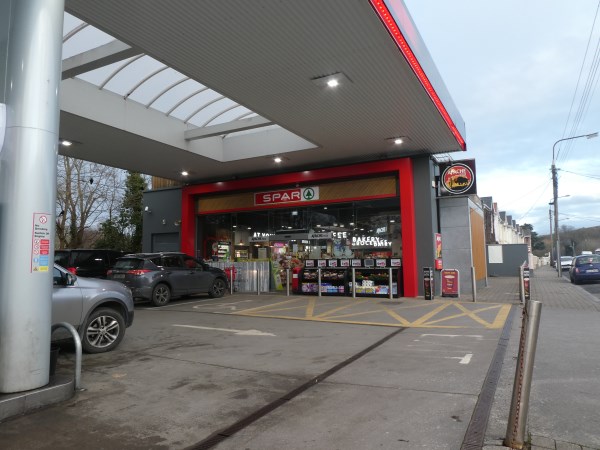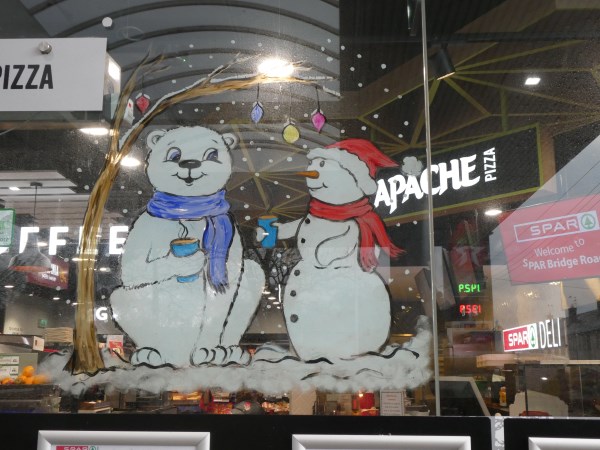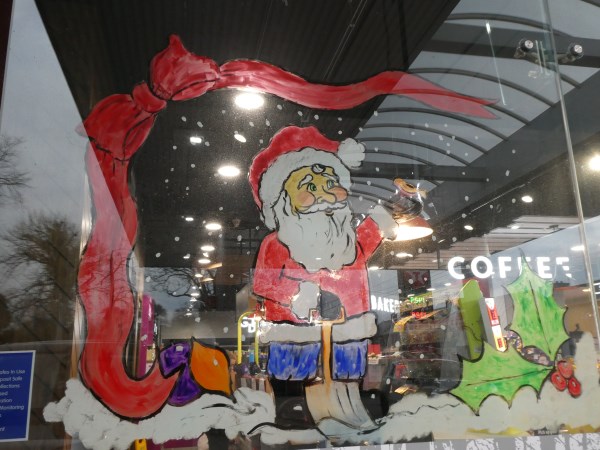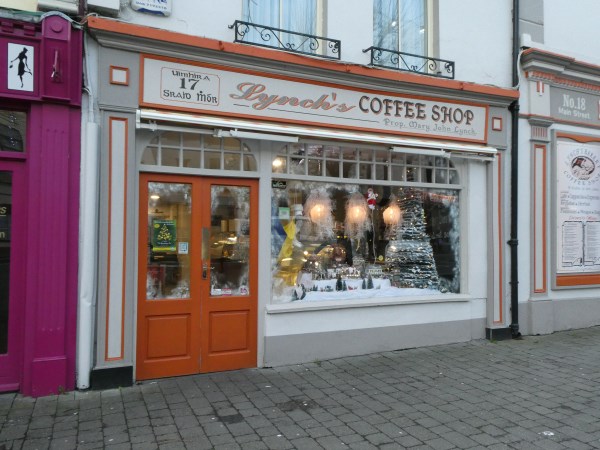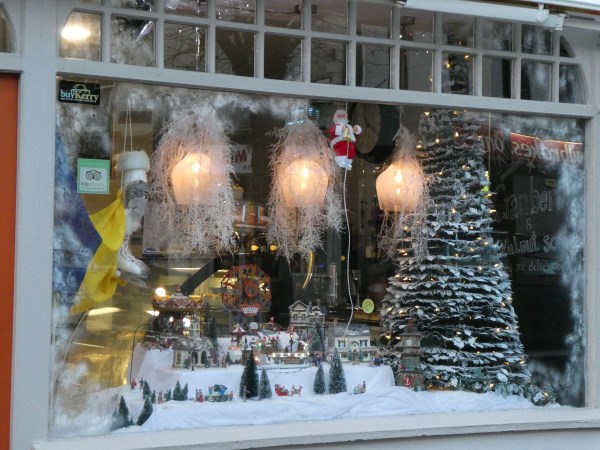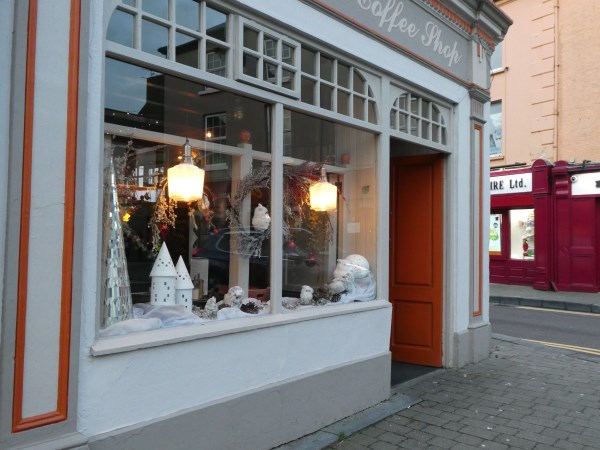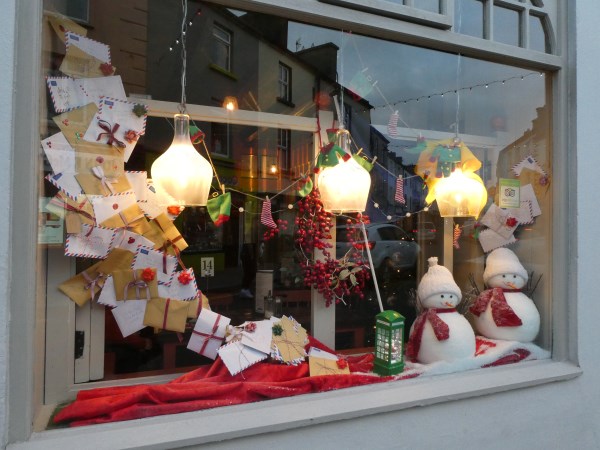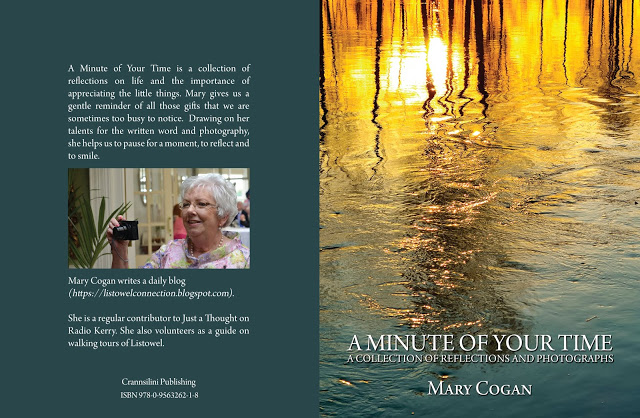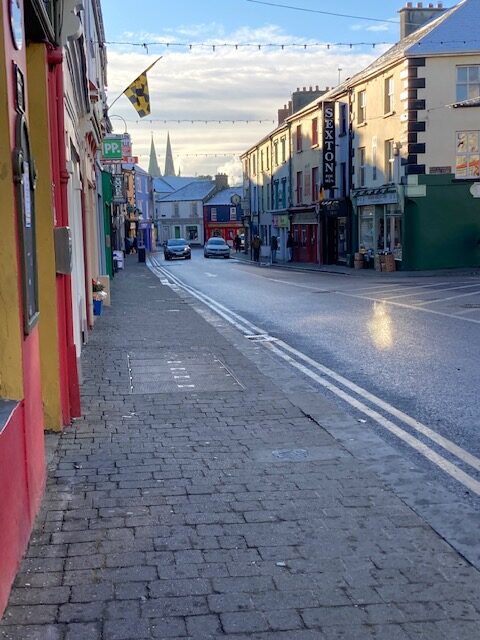
<<<<<<<<<<<
Still More Photos from the Garda Centenary
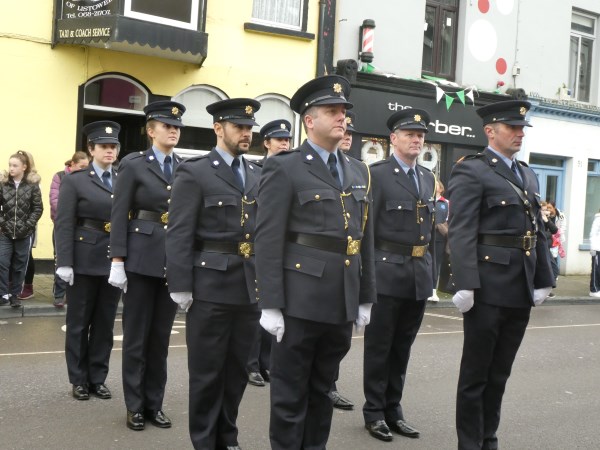
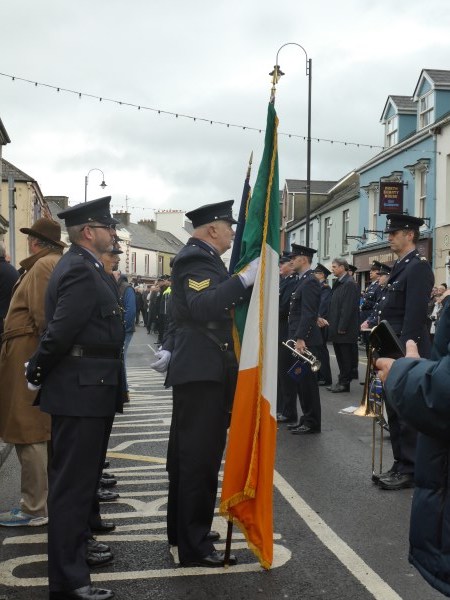
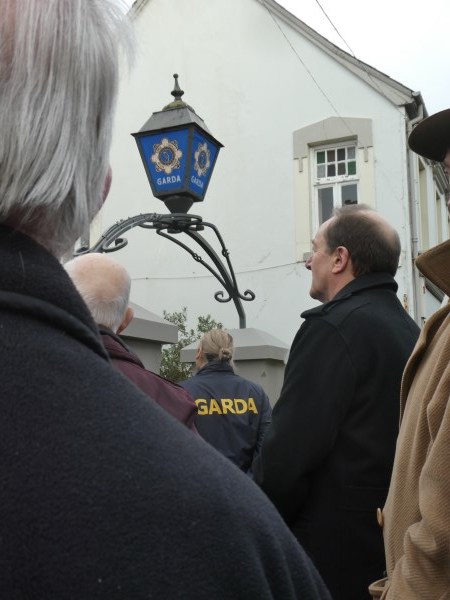
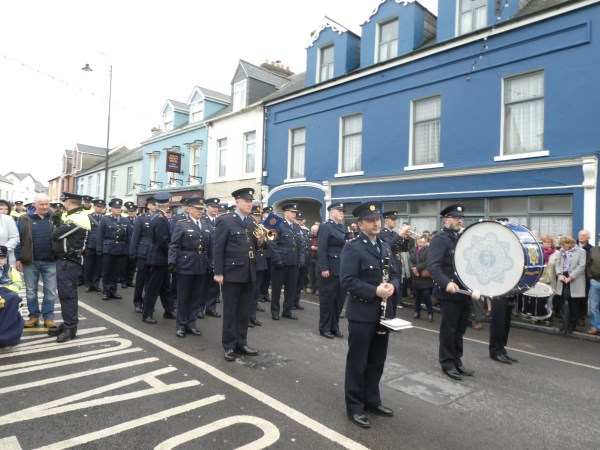
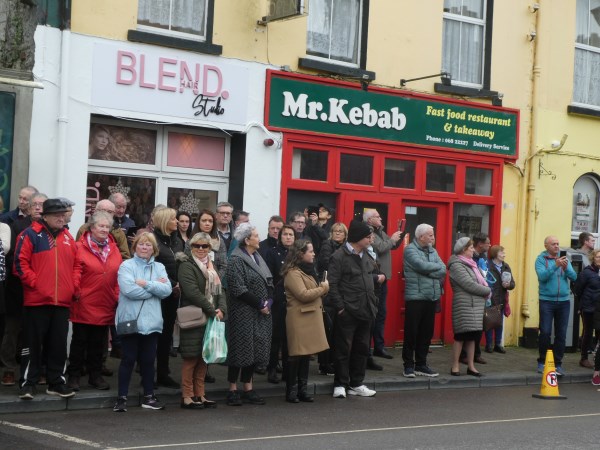
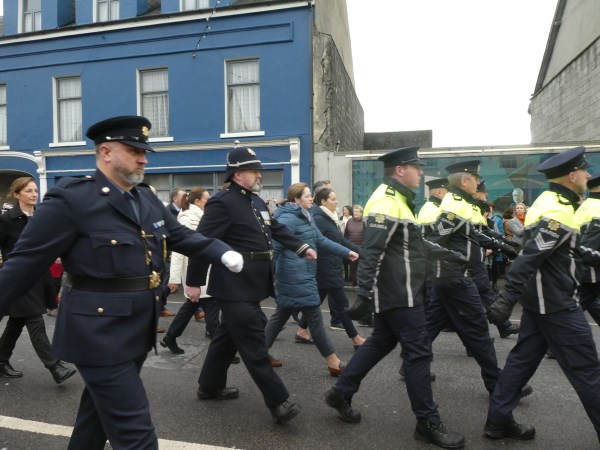
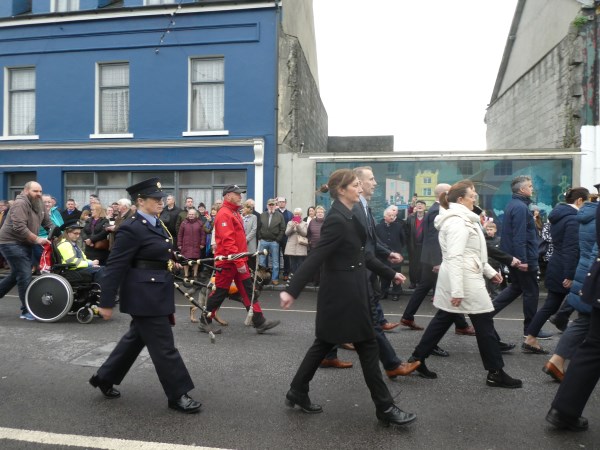
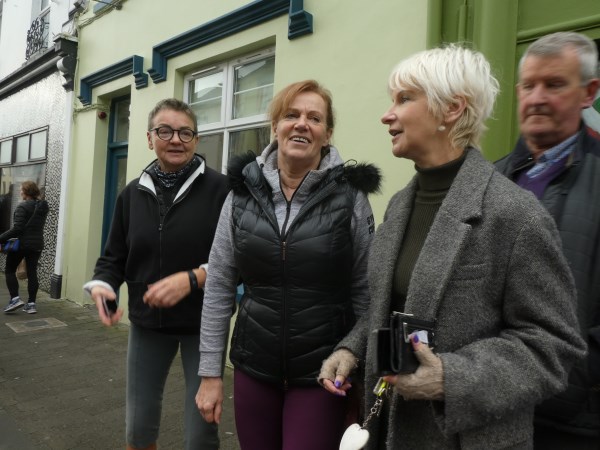
<<<<<<<<<<
Bringing Home the Holly
As he trains for his next race, David Kissane ruminates about times gone by when Christmas outings had a different purpose but were no less gruelling.
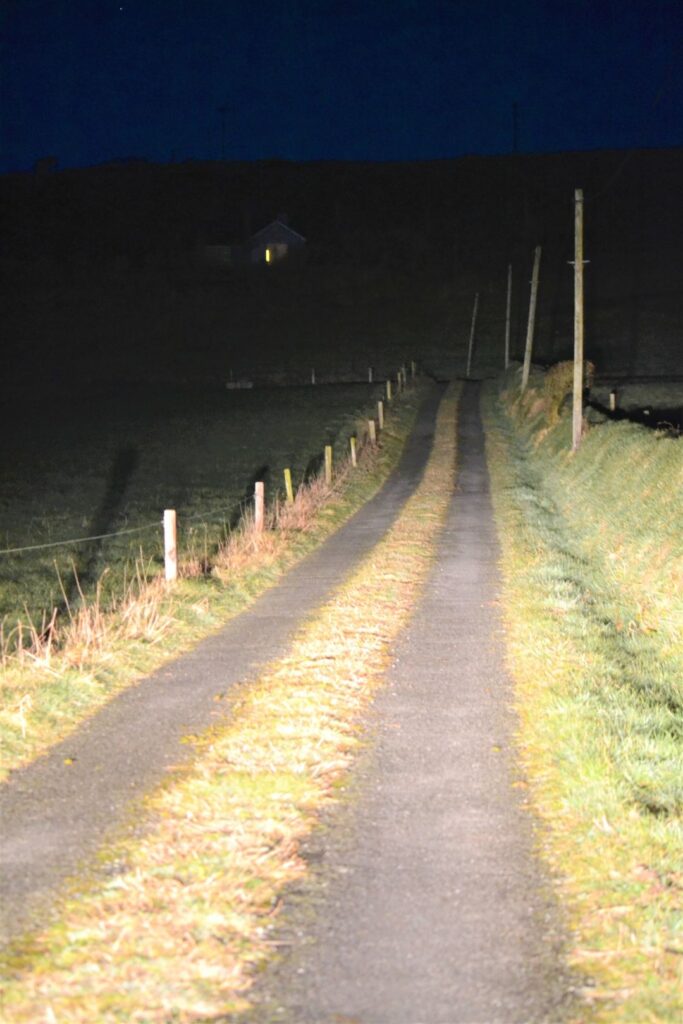
Dec 11 2022
The road to the Hill…Now read on
Bringing the Holly
By David Kissane
Bang! My father’s bike got punctured just outside the University. The University of Lisselton.
This is the first thing that comes into my mind this frosty morning as I head to Banna, driving very carefully, to do a 10K walk ahead of the national 10K road championship in Dublin next Sunday. I gingerly get out of the van and head for the safety of the sands. What a beautiful morning! Crisp and clear and honest above the head. After a week struggling with a man flu and no voice, this is like a dash to freedom with four layers of tops, all gloved up and a raw hunger. In our house, I have tried to get man flu defined as a serious ailment. With no success.
I settle into a race-walk mode and transition from flu to fluency. I recall the burst ball in the England v France World Cup quarter final last night and decide that was what spurred the memory of my father’s burst tube on a frosty day in December 1965.
You may never have heard of Lisselton. If you’ve heard of Jason Foley, 2022 GAA All-Star full back, then it may help to know he is from Lisselton in the Parish of Ballydonoghue. You may not have known there was a university in Lisselton. Most people definitely won’t know that fact. In December 1965 when my father’s front tube went bang, there was a university in Lisselton. Before MTU, Tralee. It’s a long story. Well, it’s a short story really!
There was a well-established Christmas custom in our house. On the Sunday after December 8th since he was a young man, my father would head off on his trusty Raleigh to bring home the holly. It was no short journey. From the side of Cnoc an Fhómhair to the source of the holly, Sallow Glen near Tarbert was a fair distance. Thirteen hill and dale miles there and thirteen dale and hill miles back in the dark of the December night.
He had worked on Hanlon’s farm near Sallow Glen when he was in his twenties. He fell in love around the area and the green and lush wood was to be his pre-Christmas pilgrimage every year. I always thought it was about more than holly, although holly was an essential part of the decorations at a time when Christmas trees were not a custom and fairy lights were yet to shine on our hill.
Initially my uncle Mike used to cycle with my father on these pilgrimages. My brothers had been allowed to accompany him on his Noelly journey later while I, as the youngest in the family, had to watch them go and await an eternity of their return with the red and green magic. My sisters did not qualify to share the journey. It was a man thing.
And then came the first day of December 1965 and the announcement by my father that I was to share the journey with him. I was twelve years old. I became a boy-man that day.
I had become the owner of a second-hand bike the previous summer. My brother Seán tells me that he gave me the £5 note that purchased the bike-animal from Mickeen Lynch in Killomeroe. (There are many advantages in being the baby of the family. Older siblings gave you things.)
There was a smile on Mickeen’s face when he handed over the bike. A Hercules. By name and nature. A tank of an animal made more for war than peace. So high, I had to cycle by placing one of my legs underneath the bar and leave the saddle redundant. A piece of contortionistic twisting that possible stretched muscle and bone for football and athletics in later years. A balancing act ideal for discus throwing. A weird thing to look at, though and I became a cycling legend on our hill before my time.
So the day came. The voyage of St Brendan of Ardfert to America or that of Maol Dún of Irish folklore would hardly equal the heady level of expectation on that December Sunday. Home from early mass, my father made his version of ham sandwiches. Usually my mother did all the food in our house but the holly day was all male. When I say ham sandwiches, I really mean an inch layer of butter on each slice of home-made mixed bread with three thick slices of ham nestling in between. A pig in between two bread vans, my father called it.
Off we headed down the hill after my mother had drowned us both, especially me in holy water from the blue font inside out front door. Left at the bridge and on to the better road and then “bang!” as that puncture happened. My father uttered a strange new word of a semi-religious nature that I hadn’t heard before. I was indeed growing up now that he would allow me to listen to his secret language. Luckily, the tyre/tube explosion had happened outside Moss Enright’s house. The University of Lisselton.
Every Sunday and holy days of obligation after second mass, the young bucks of the Parish of Ballydonoghue (of which Lisselton was once the centre) would gather in this small thatched intimate two-roomed cottage. The owner, Moss Enright was a blind man who never saw the changing colours of the hill above but could see into your soul. He lived alone but on Sundays his house became a rambling house for the teen and early twenties – boys and young men only. The house acquired the name of “The College”. Later it was upgraded to university status. Why? Well apparently a lot of learning went on there. Mainly about boy-girl relations. There were rumours of The News of the World being read there which had pictures and stories that were not in The Kerryman. Fellas who didn’t know certain things were asking questions and getting answers. Interesting answers. Sometimes slightly exaggerated by the wily older “lecturers”. What, where, how and when was the first word in many of the questions and the expressions “hayshed”, “liquor is quicker” and “jiggy jig” seemed to occur quite a lot. Allegedly. Mothers raised their heads and looked down their noses and rooted for their rosary beads when Moss Enright’s house was mentioned.
And the fact that young fellas went there after second mass seemed a special affront to the strict ethos of the world that we thought we knew. The culture of unspeakability was in force.
My father had a decision to make. Seek help in the den of iniquity or turn back home. I think he may have blessed himself as he made the fateful decision, quickly enough. I concurred. No knocking in those days. My father lifted the latch and walked in. I could hear the devil giggling in front of the fires of hell as we entered the small living room which was half the house. The smell of turf from Ballyegan bog in the fire to our right had a devilish aura about it. I distinctly remember a voice breaking off in the middle of a sentence that had “mini-skirt” in it and then a silence fell. Male eyes looked at my father and then at me. They ate our presence. They were all seated on the sugán chairs which Moss himself made. He could see with his carpenter’s hands.
I was about to bolt when Moss asked “Who’s there?” He guessed from the silence that we were not regulars and my father said “Moss, my bike…” and Moss immediately said “Jim Kissane, come in and sit down!” And before we knew it, four or five fellas were turning the bike upside down and applying sharp-smelling solution to the tube and lighting a match to heat it and applying a patch and soon we were on the road again.
They may have been dancing with the devil, but they could certainly fix a puncture.
As we thanked them and left, I was endowed with awe as to how the story of the mini skirt developed and what the question was that gave it substance. I did look back once. At the little sash window of wonder that looked south to Lisselton Cross. A lookback of pre-memory.
I was to look back many times like that in my life-post-Lisselton University.
Onward we pedalled, right at Gunn’s Cross and left just below it at Lyre Cross and up Boland’s Hill. Past Fitz’s shop on the right that supplied groceries to the local population of Farnastack and beyond since before the Emergency, otherwise known as World War 2. Our family had shopped there with the ration books which ensured a measure of tea and sugar and flour. Most times. People on our hill sometimes went without the basics while the world powers rattled bullets at each other. The price of neutrality, or being a small nation. There was always torching for birds at night or the turnips or the hens and ducks which were sacrificed for the bare kitchen tables.
But now it was 1965 and the world was different. We had butter and ham sandwiches to look forward to.
We had to dismount near the top of Boland’s Hill and my father reminded me of the famous local poet, Robert Leslie Boland who once resided there. A local poet who wrote like Keats when necessary. He also wrote a sonnet about piles. The only poet in the world to write a poem about piles. Apparently he had to write it while standing up. He also wrote a poem about Brown and Mageen who had owned a shop long gone by the 1960s. He was yet to be recognised as a major poet by the ones who think they know.
On the farm also on our left was the stone structure of Boland’s Loft. Another den of iniquity, my father said with a new trust in my cognitive capacity. He was telling me a story rather than preaching. Dances took place when the loft was empty. Priests tried to close it down because men and women came together there. Dancing was a dangerous thing and priests had been told by their mothers, the church and by their superiors that dancing meant hell. I tried to figure this out and concluded temporarily that all good things were sinful. It was only one pm and already life was becoming incredibly interesting.
My brain was purring as we remounted our iron horses just after Boland’s Quarry which had supplied stones for local roads. To our right was another quarry across the fields, Lyons’s Quarry.
“I worked there myself” my father said and he added that a rat had run up the leg of a worker’s trousers while he was sitting down to his lunch. “What happened then?” I asked with wide eyes in the frosty air.
“The rat came down again…there wasn’t much to see there!” he quipped and I reddened while interpreting that one.
Onward past Guhard and Tullahinell, along uncertain narrow roads where I had never been before. I was informed of a Healy man who married one of my aunts on a farm here in Tullahinell and who was buried somewhere in England. The story in between was not revealed so I nodded silently as my nose began to run with the cold. Cycling doesn’t really warm you up, I said to my father and he silently agreed.
As we cycled down towards Ahanagran Cross, the blue Shannon revealed itself to the north and soon we were in Ballylongford.
“We can’t leave with the curse of the village” my father declared as he jumped off his bike outside a public house on the right. Before I could ask the meaning of that, we had entered the pub and I was told to sit on the high stool at the bar. Another first. I distinctly recall the smell of porter and pub that pervaded. A conversation started between my father and the few others who were having an after-mass drink (what time did mass finish in Bally?) and a glass of sparkling Nash’s lemonade was placed in front of me by the barman who sensed he had another new possible customer.
With refreshed heads, we headed out of Ballylongford and onward to Sallow Glen, past Lios Laughtin Abbey where we stopped to pray for a silent moment. Before I could ask why, my father was already on his bike.
The first sight of the wood was enthralling. A place of mystery and verdant cover with all sort of possibilities and holly somewhere. In those days, it was not an issue to go through a farm or a wood and pick holly. My father had warned me that he would pick the first holly when we found it. He would ensure that he would show me how to cut it properly so that twice the amount of produce would grow on that branch next year. He had warned me also that he had come there a few rare years and found no red berry holly at all…an October frost had enticed the birds to eat every berry they could find. This challenged my confidence until we started searching.
We were searching for a long time. An hour passed as we wove through brambles, briars and branches, but all green and brown. Not a berry in sight. A briar with a sting like a wasp tore through the back of my hand as exhaustion and despair knocked on my heart’s door. My father examined the wound and spit on his hanky and rubbed the blood off. I guessed he was not impressed with my undernourished enthusiasm or my dipping stamina. I had to follow the leader to be safe. I had visions of being abandoned and lost for years in the bowels of Sallow Glen. Eating berries, if they could be found and wood bark and ciarógs. Drinking water from the stream that rippled somewhere on its way to the Shannon. Emerging from the wood as a hairy old man, unable to express myself, filthy and smelly and making animal sounds. A bit like after finishing a marathon…
And there it was! All of a sudden, a huge holly tree stood majestically before us, a riot of red and green.
“A Mhuire Mháthair!” my father exclaimed. My eyes opened to the gift which Sallow Glen had bestowed on us. He had told me stories on winter nights about the Celts worshipping trees, about Fionn Mac Cumhaill and the Fianna having adventures in the great forests in the days of old. Now I believed him. I swear to God that at that moment the low December sun shone through an opening in the wood and lit up the holly tree and turned it into an altar of light, a fire of nature and a blessing and an affirmation that we had found the holy grail. He blessed himself and so did I.
I watched him take out his pen-knife and lovingly accept the small branchlet of scarlet berried wonder from the tree. It felt more like the tree was gifting it to him. Then he motioned to me to take out my little excalibur-not of a pen knife that I had bought in Behan’s shop at Lisselton Cross and gently showed me how to accept the holly. I thought I was in the presence of a spirit and was uplifted and enthralled and almost said thank you to the tree.
Years later the experience would be replicated in other sharing moments. It started in Sallow Glen.
Then , when I was still under the spell, my father said “enough”. I opened my mouth to say “more” but he raised his finger and shook it towards my brain. That was that. Like all good experiences, less was more.
The eating of the well-buttered sandwiches and the cold tea from the bottles on a fallen tree trunk, untouched by time, was magic. We ate in silence as in the bog or after a rare experience. A robin came right up to us to check out why we had invited ourselves to his/her wood. We threw a few crumbs and there was the beam of low sharp sunlight breaking through again and shining right in the little bird’s eyes. I was able to see the colours of his middle eye and I think I became a half robin at that moment. That day just kept on giving.
As I rose from the tree trunk full of everything, my father said “Hang on a minute”. I sat back down silently. He shifted his hat on his head and said emotionally “You know the graveyard in Lios Laughtin that we passed on the way here?”
“Yeah” I said lowly.
“Well”, he stated with a fierce sincerity “you have a little brother who is buried there. He was only four. I think of him when we come this way for the holly. I think he knows it too”.
I had heard silences and broken conversations at home when death had been mentioned and might even have decided not to remember such things. But I heard it now. And I was to remember it.
We went over to the bikes and secured our barts of holly on the carriers. The weight of the moment was lifted when my father failed to get his leg over the bart of holly on the carrier of the bike and fell over in a heap. Cue the laughing by us both…but I had to wait till he laughed first!
My father was never the same, but he was always himself.
Soon we were back on our bikes and heading back the thirteen starry miles home, partly by a different road. Despite the shine of a possible frost on the narrow road, a gratitude attitude pervaded my being. What threads were making up the fabric of that day! The sun set at this stage as December suns don’t hang around and a chilly breeze faced us from the north west. I felt warm inside though, happy to be here and not always wanting to be there.
When we passed Moss Enright’s later, the house was dark and Moss was asleep in his own darkness. I wondered what inner luminosity his dreams bestowed with the visions he got from the words of others. Of the visions supplied by his gifted carpenter’s hands. Or the deeper visions given only to those who are blind.
I looked up the hill and whispered to Moss, and to my lost brother, the first words that came into my head. A sky of stars, the plough pointing to the north star, lights in Kennelly’s, Linnane’s, Henchy’s, Kissane’s, Healy’s, Sullivan’s, Lynch’s, Linnane’s, Deenihan’s, Bambury’s and Barry’s houses. And Christmas was coming.
Now I am back on Banna with the 10K nearly done. People are basking in the December 2022 sun. Damien and Adrienne McLoughlin wave as they pass…a lot of athletics knowledge in the McLoughlin house. The huge success of the Irish cross country squad in the European championships in the past few hours in Turin is mentioned. Then two young women raise their arms to the sun as they pass by and kiss each other. Moss Enright would have smiled behind his closed seeing eyes. Unknown people like him helped to create the open world we have in Ireland in 2022 and beyond. It can’t be an accident that Kerry rhymes with merry! A normal Sunday for most of us and later we will say that we didn’t do much today. The writer Montagne would comment “You say you have done nothing today…have you not lived?”.
Last week we put the name of Joseph Kissane on a new headstone on the family plot. A bright and crisp Sunday lies ahead. My 69th Christmas on earth is coming too and next Sunday I will walk the walk in Dublin for our little brother Joseph who never saw his 5th Christmas.
<<<<<<<<
Athea at Christmas 2022
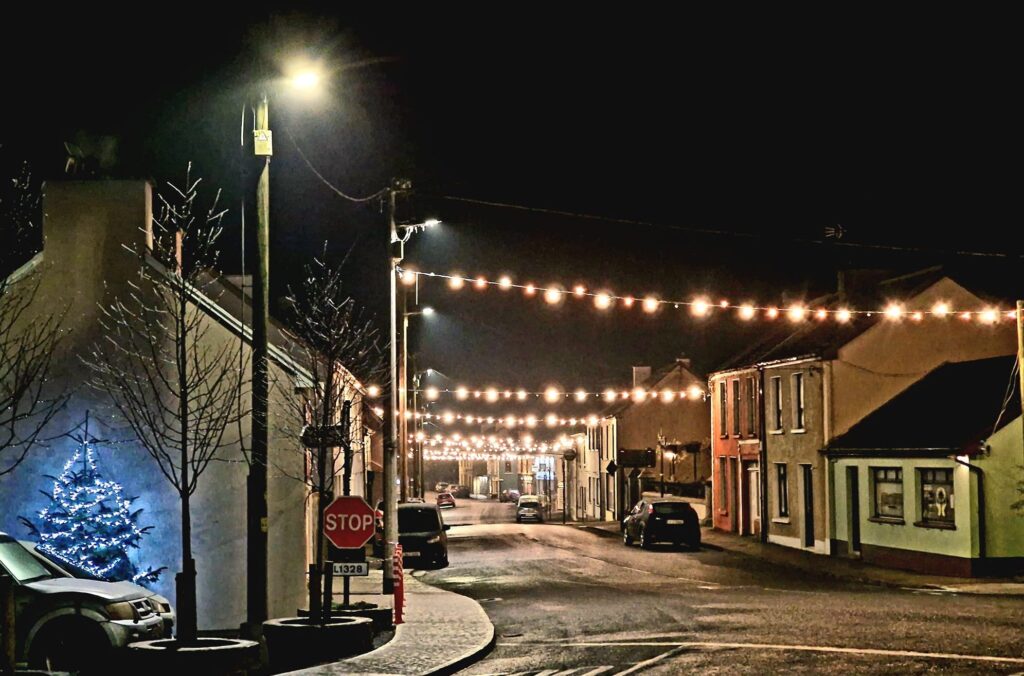
Photo: Athea Tidy Towns
<<<<<<<<<<


